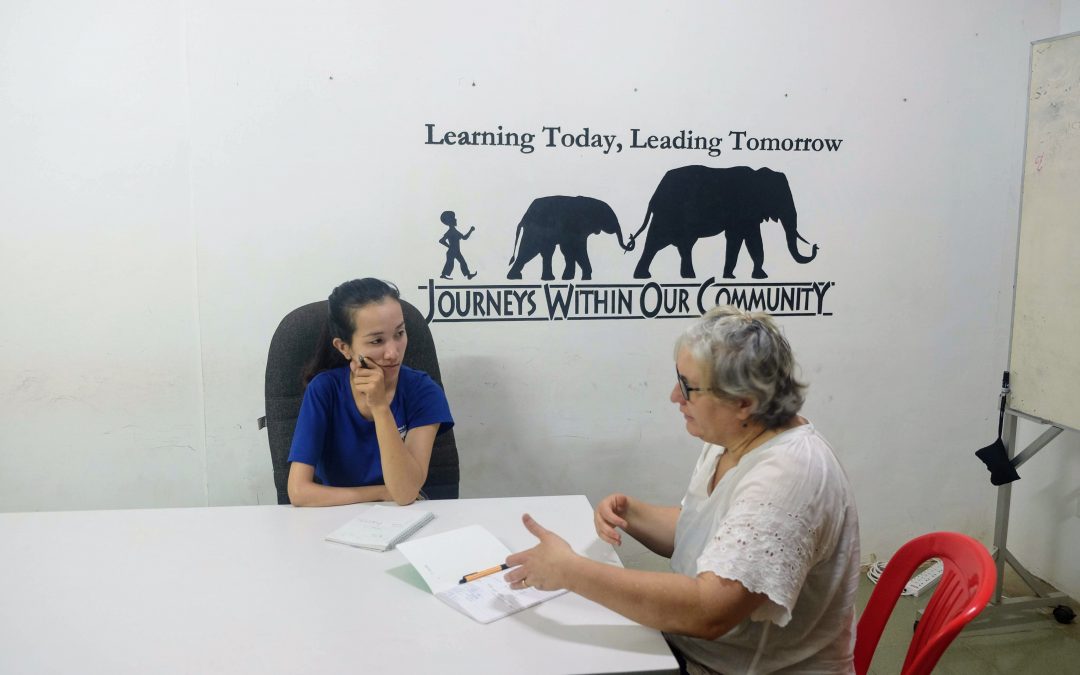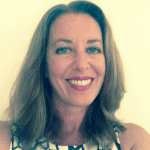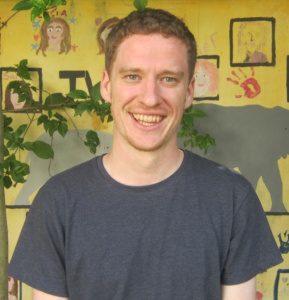 Professionals doing good sat down to talk with Kneath Heard, Executive Director of Journeys Within Our Community (JWOC). Originally from Bristol (UK), Kneath took a Master’s degree in International Development and worked in South Korea and Malaysia, before moving to Siem Reap, Cambodia. We discussed about professional volunteering and how skilled volunteers helped aid the organization’ s focus and mission.
Professionals doing good sat down to talk with Kneath Heard, Executive Director of Journeys Within Our Community (JWOC). Originally from Bristol (UK), Kneath took a Master’s degree in International Development and worked in South Korea and Malaysia, before moving to Siem Reap, Cambodia. We discussed about professional volunteering and how skilled volunteers helped aid the organization’ s focus and mission.
Tell us a bit about Journeys Within Our Community (JWOC)
I work for Journeys Within Our Community (JWOC), a local organization founded in 2006. Over the years, we’ve had multiple programs building the capacity of the community, primarily through education-based projects. The one constant throughout that time has been the Scholarship Program where we support low-income students who have graduated from high school to go to University. During that time, we also facilitate the opportunity for them to give back to their community through the different projects that we run
What are your views on volunteering?
I believe that if an organization lacks a particular skill, or if it needs a skill to complement what it already has, for example if an organization is teaching English and they want someone whose first language is English so that the students can practice, then I think volunteering is good.
I also feel that it’s good for the volunteer; the opportunity for them to step outside of their comfort zone, to share their skills. I think it’s a good experience all around as long as the expectations are set so that both parties know what they’re getting into.
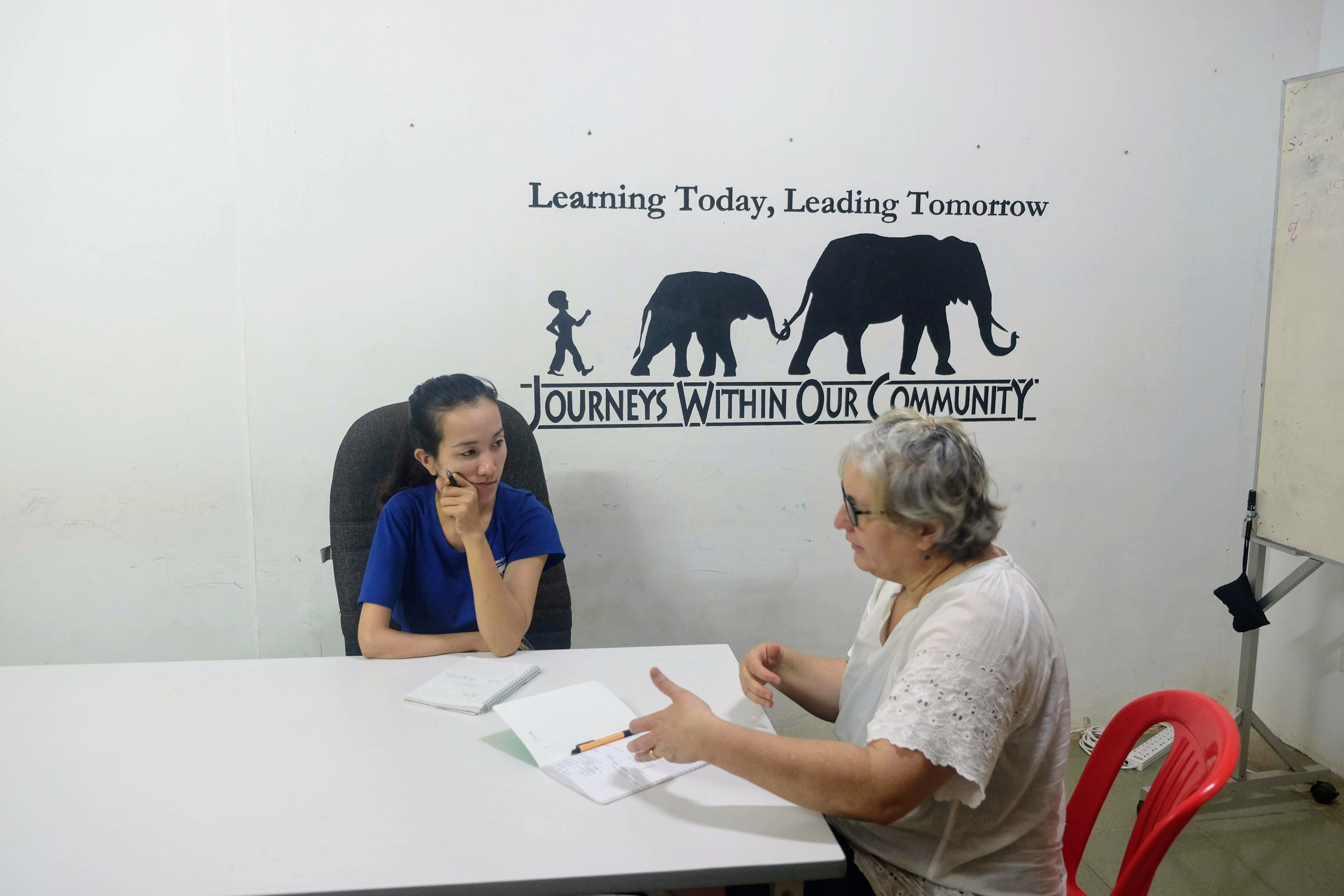
Why was your organization looking for a skilled volunteer?
We were looking for a professional volunteer because, as an organization that has existed for a long time, and because of the way we’re set up, our primary source of income has been through guest experiences. Since the market in Siem Reap and Cambodia is changing, the demographics of tourists are changing, and there are multiple organizations who have outreach projects for visitors, so we thought it was time to look at refreshing our approach and diversifying our donation streams. We felt the best way to do that was to bring in someone who has professional marketing experience in the for-profit sector to come in with a different mindset so we could match that with the skills we have working in the non-profit world – bringing those two together to drive new opportunity, but also to get the perspective of someone who is not in Cambodia; someone who is outside, who has worked with larger companies, who may, for example, have Corporate Social Responsibilities programs.
How did Professionals doing good helped you find the right volunteer?
Luisa Gentile, the founder of Professionals doing good, has been associated with JWOC ever since I first started three years ago; she was a volunteer, a member of the Board of Directors, and now an in-country Board Advisor who has helped JWOC with a lot of its strategic planning, so we’ve always had a good relationship. Luisa has been able to place a couple of professional volunteers for us from website design to looking at our donor base and marketing, and because she lives here, she has a good understanding of the types of people that we need.
How have previous volunteers impacted the way you work ?
One of our previous volunteers, Mickey Diener, redesigned the JWOC website. We had been looking for a professional volunteer to do this for some time, and then Luisa found Mickey who completely redesigned the entire website and has continued to work with us to ensure that the website management is sustainable, working with our local team to help them understand how to maintain it going forward.
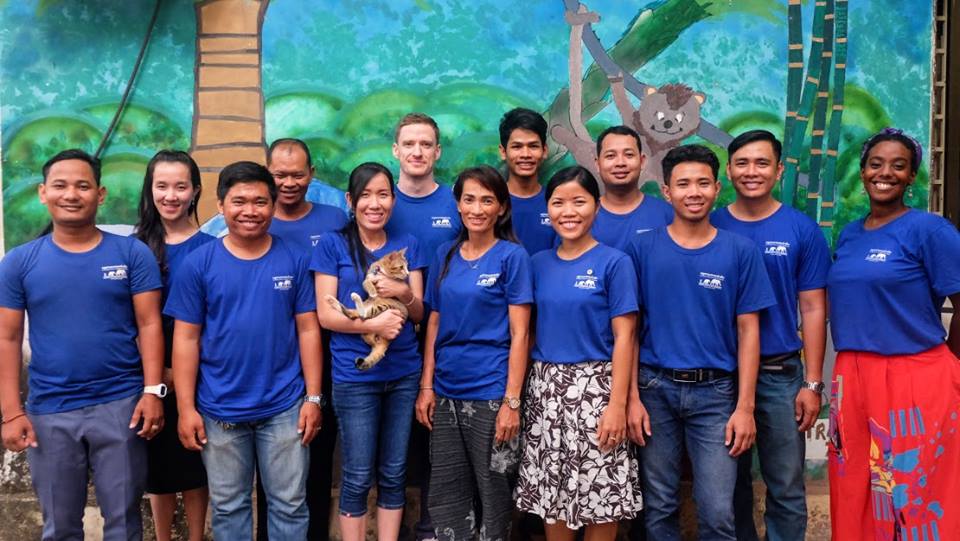
What differences have you noticed between having a professional volunteer compared to an intern or student?
The difference is in the title; a professional volunteer is someone who has more experience in their background. They’re bringing a larger set of skills or a capacity that we may not have in-country. It’s also possible that an intern or student may have relevant skills, but there’s going to be a lot more capacity-building on our side. It’s a larger investment of our time and resources to make sure that individual is up to speed, whereas a professional coming in is predominantly growing our capacity. The relationship is different in the sense that, for the most part, we only use professional volunteers to work behind the scenes, so they’re helping with the operations, specialized curriculum design and the drivers of the organization, whereas a student is more likely to work as an assistant in a classroom, never teaching a class themselves, but supporting the team in some other way.
Are you thinking about having another professional volunteer hosted at your organization, and if so, why?
We’re definitely considering having more professional volunteers placed. We’re an organization that is currently undergoing some strategic planning, so it’s good for us to bring in some specialists and consultants in this early stage to grow the capacity of our staff. The important thing is that everything is locally-owned. A volunteer will only be with us for 3 months, and hopefully they will keep in contact and continue to work with us, but the local team will be here on average for 5 years, and they’re the ones who will ensure sustainability. At this early time, we would definitely consider bringing someone in to help the team build curriculum and support project design.
What advice would you give to a professional volunteer willing to volunteer in Cambodia?
Be flexible; you may have certain expectations before you arrive about what you would like to achieve, and in the time frame you can do it. I would say to be prepared for that to change. Quite often, it’s not about the final destination, it’s about the journey and the process of helping the team learn to reach that place. In addition to that, I would say that a professional volunteer needs to be comfortable working independently. Obviously, a part of the experience is working with the team, and learning about the culture, I think that’s very important. Equally, small non-profits like JWOC have limited resources, so we’re not in a position where we can spend a full day with a volunteer and have them consistently reporting back and forth. There needs to be an element of independence, and then the whole effort will become much more rewarding.
What advice would you give to other organizations who might want to host a professional volunteer?
To provide structure – really having clear objectives of what you would like to achieve. Of course, this is development so it needs flexibility as I previously mentioned, and that path is going to change, but you should know what you’re heading towards.
I think it is important to remember that someone from a corporate background working in Europe or the US is quite likely to work at a pace which is different to what we may be used to. For numerous reasons, things can take a little longer to happen here. It’s important to understand and set expectations on schedule, project outcomes etc. with the volunteer, to make the most of their time.
Remind your team that a professional volunteer is giving their time to the organization because they are interested in the cause, but they also want to learn about the country – they want to learn about Cambodia, they want that experience. They want to go away and tell their friends and their colleagues back home about the experience they had, and maybe those people will want to come out and help your organization in the future. You need to take that time outside of the office as well to let them experience the country, to have lunch with the staff, and to make the most of the experience.
To learn more about JWOC, visit their website and learn the impact they had in the community in their latest 2018 Annual Report.
Interview by Keisha Gani – JWOC Fundraising and Communications Manager
